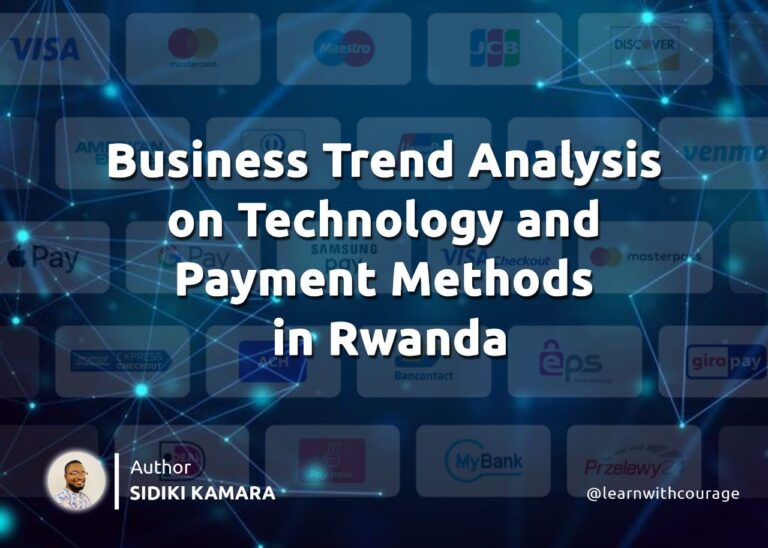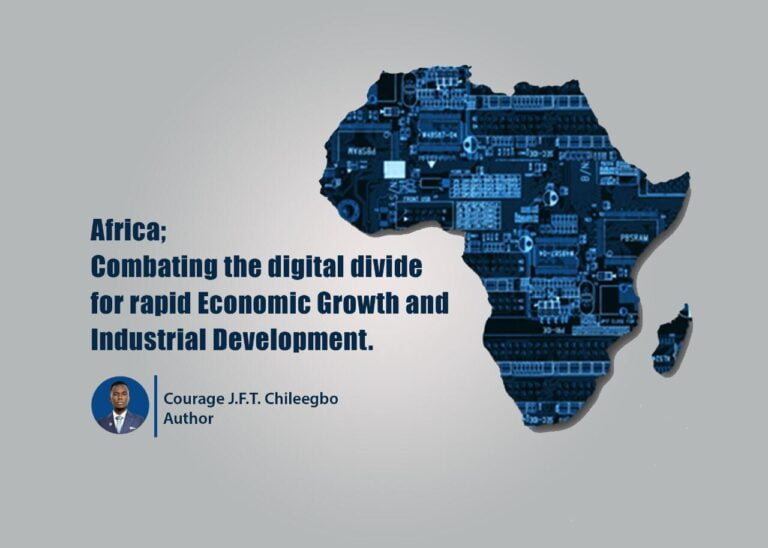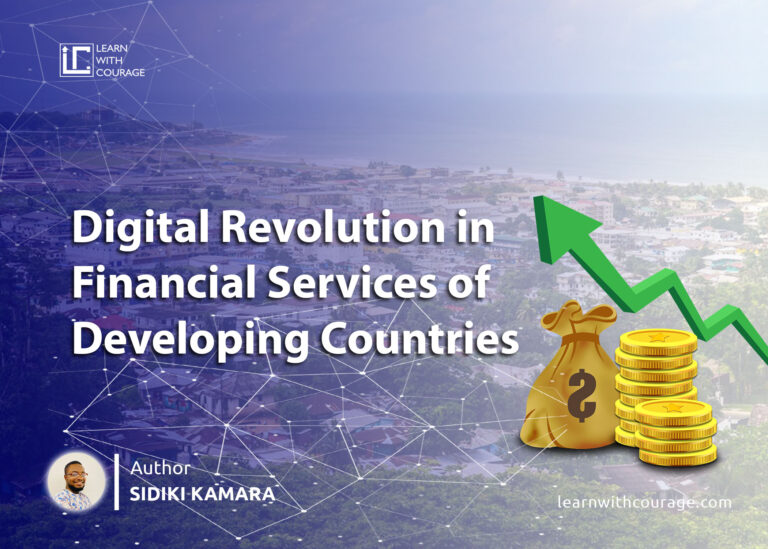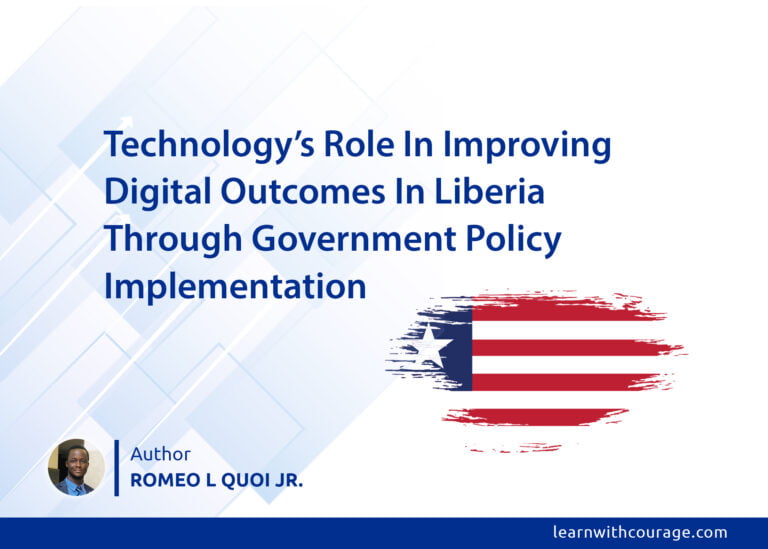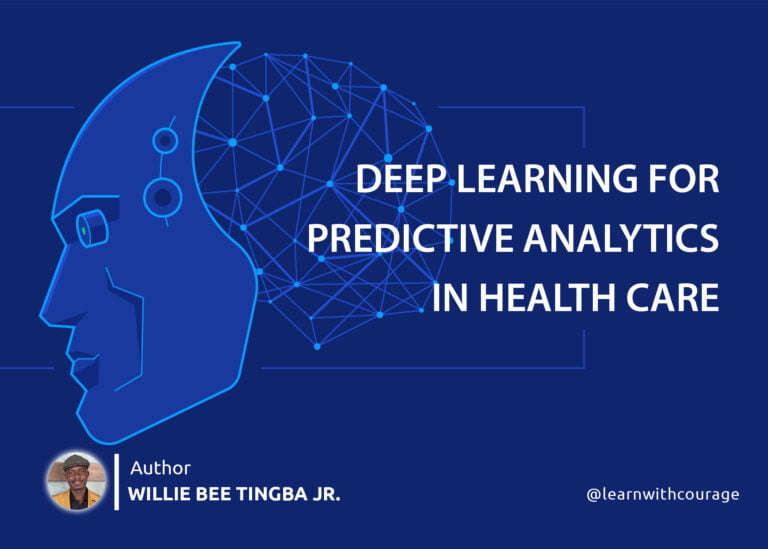Data privacy in the era of the Digital Revolution in Liberia
There is an urban legend that states that African people exchanged their lands for mirrors. This legend was dramatized by the first President of Kenya Jomo Kenyatta aptly when he said: “When the missionaries arrived, the Africans had the land and the missionaries had the Bible. They taught us how to pray with our eyes closed. When we opened them, they had the land and we had the Bible”. An exchange of land for a mirror or any book is not a good business deal; it is irrational.
But sadly, we live in an era now where many people in our society are making transactions similar to the exchange of mirrors for lands yesteryears. We live in an era where we are told that many vital goods are demonetized. Demonetized goods mean that these goods are free. Of course, there is no free lunch, and never was! We are told that the company Google gives us a Gmail account for free.
We are also told that the company Facebook gives us WhatsApp and Facebook accounts for free. We are told that we no longer need to pay for video conferencing because we can make video calls for free using WhatsApp. Of course, for us to make such video or voice calls using WhatsApp, we need data; which we can buy from Orange and MTN (Lonestar)
These demonetized goods, such as Gmail, WhatsApp, and Facebook accounts are not free because they are given to us in exchange for our personal data. Once we subscribe to these accounts we surrender our personal data, and consequently, we are monitored 24 hours a day, not by a person but by sophisticated software. These organizations know our movements, what we like and do not like, what we eat, what websites we visit, etc.
If you are walking in the shopping mall, you realize that someone is following you and is recording all your movements, and you will be terrified. Why then are we not terrified about being followed by Google, Twitter, or Facebook artificial intelligent software? We are not terrified of the online follower, i.e. software agents – as opposed to the offline follower, i.e. human agents, because the online follower pretends that it is not there. We do not hear its footsteps nor do we see its shadow reflected on a window pane.
These “borderless” companies extract much more value from the people that subscribe to them than the value they give. This simply means that those of us who are subscribed to these technologies are not acting rationally because we benefit far less than what these companies gain from us.
What are the implications on Liberia’s security if many of our people are subscribed to these technologies and are being monitored?
Many of our top leaders in politics, business, and society are subscribed to these technologies. These people, when they send messages to one another through Gmail accounts, their messages often move from Liberia to the United States and then back to Liberia. This means that such messages can be intercepted and used in a manner that is not in the best interest of our country.
So what have other countries done to prevent a such breach of security? China has to create its versions of these technologies such as Baidu instead of Google, WeChat instead of WhatsApp, and Weibo instead of Twitter. Hope many youth and students here at this summit can get into the field of technology to develop our own social media platform for data privacy in Liberia.
There is a field of engineering called Control Systems. Control systems are a technology that is used in our aircraft to identify the optimum altitude that will result in less turbulence. This technology is used widely in our factories whether in making beer or manufacturing cars. One of the first principles of Control Systems is that if one wants to control any system or object, the first task is to monitor it. These social networking companies are also monitoring the behaviors and movements of our people, and if we take the idea from Control Systems to its logical conclusion, to control and influence people.
Are we happy with some company in California remotely controlling our lives?
What then is to be done to ensure that the large-scale surrender of personal data to companies domiciled in the USA or any other part of the world does not result in the digital colonization of the special type?
- Firstly, we need to create a regulatory framework around the use of our domestic data across the border because Liberia doesn’t have a data protection Law.
- Secondly, we need to educate our population on the need to understand the concept of exchanging personal data for an email or social network account and the implication thereof. This should include infusing this education at all levels, be it primary, secondary, tertiary, or even adult-based education.
- Thirdly, and perhaps more difficult, we need to start thinking about creating our own national and perhaps continental social networking companies in Liberia. In this regard, Liberia must understand the managed services providers (MSPs) and learn how to price them to achieve digital sovereignty.
- Fourthly, we need to stop our political leaders from using these accounts because this compromises our national security. The measure of how serious a country is is by how many of its top leaders use Gmail accounts, as opposed to sovereign accounts to conduct their business. Coming back to education, the measure of how serious a university is, is by how much its leaders use Gmail accounts to conduct business rather than university accounts. We have to fight for our sovereignty digitally.
- Finally, whoever controls data controls the future and Liberia must invest in data technology. We need a transactional system that is rational, reciprocal, and fair so that we protect our data and sovereignty. Data privacy needs to be taken seriously in Liberia to protect people’s data in cyberspace.
As an optimistic Tech Spartan Leader, we always say, there is still hope for Liberia.
We will not rest until Liberia gets transformed through technology.
Thank you all for giving me an audience


